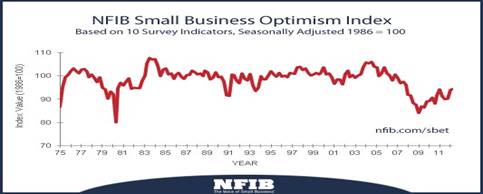
We know Victor Hugo's message is alive and well when Paul Ryan's latest budget proposal continues to punish the poorest for the sins of the wealthiest who caused the Great Recession, and have yet to be punished. Les Miserables' Jean Valjean is punished for stealing a loaf of bread while the French aristocracy refused to share its wealth. Then came the French Revolution, of course
And Republican Paul Ryan's latest budget proposal punishes the poor to pay for the excesses of the wealthiest that created the worst budget deficit since WWII. "We propose to stop fraud in the food-stamp program by ensuring that individuals are actually eligible for the taxpayer benefits they receive," Ryan said at a recent press conference.
Yet congressional Republicans will do nothing to return the fraudulently obtained trillions of the wealthiest beneficiaries of the burst housing bubble by raising their taxes. The fraud of those like Goldman Sachs who benefited most has been well-documented by Chairman Philip Angelides' Financial Crisis Inquiry Commission, which was set up to determine the causes of the financial meltdown that led to the Great Depression, among them criminal fraud.
"The bipartisan panel appointed by Congress to investigate the financial crisis has concluded that several financial industry figures appear to have broken the law and has referred multiple cases to state or federal authorities for potential prosecution, according to two sources directly involved in the deliberations," wrote The Huffington Post. ... "Though civil charges appear a more likely outcome should prosecution result, one source familiar with the panel's deliberations said criminal charges should not be ruled out. The commission's decision to refer conduct for prosecution underscores the severity of the activities it has uncovered and plans to detail in its widely anticipated final report, the sources said."
One-quarter of the House GOP spending cuts come from programs directly benefitting the poor, such as Medicaid, food stamps, the Social Services Block Grant, and a child tax credit claimed by working immigrants.
"This plan hits the food and nutrition programs but totally exempts all the agricultural subsidies," House Democrat Chris Van Hollen said. Republicans would also eliminate Social Services Block Grants, a $1.7 billion-a-year program that gives states money for Meals on Wheels, day dare, adoption assistance and transportation help for the elderly and disabled.
Further proof that austerity doesn't work during this recovery is the significant 2012 jobs recovery, according to several indicators, much of it from the recovering auto industry. In April, manufacturing employment continued to trend up (+16,000), along with job growth in fabricated metal products (+6,000) and machinery (+5,000), according to the BLS Employment Situation release. Since its most recent employment low in January 2010, manufacturing has added 489,000 jobs, largely in durable goods manufacturing (i.e., auto sector).
The Brookings Institution is just out with an excellent report on geographical trends in manufacturing jobs, which says there is a major shift of jobs back to the Midwest from the South, mainly because of the resurgence in motor vehicle manufacturing, where employment has jumped some 10 percent in just the past two years (2010-11) -- again, thanks to the government stimulus.
And the Bureau of Labor Statistics, in its latest JOLTS report, said the number of job openings in March (not seasonally adjusted) increased over the year for total nonfarm, total private, and government. Job openings increased over the year for durable goods manufacturing, nondurable goods manufacturing, retail trade, health care and social assistance, and state and local government. Job openings in the Midwest and South regions increased over the year. The total number of job vacancies jumped 172,000 from an upward-revised level in February. The 3.737 million job openings for March 2012 is the highest since July 2008.
Lastly, the NFIB Small Business Confidence Survey shows both increased hiring and income. It outperformed expectations in April, rising two full points to a level of 94.5, and thereby matching the recovery high set in February 2011. The employment-related measures improved as had been previously reported, and there were some pleasant surprises among the other components.
Graph: NFIB
We can therefore say those who want to punish the poor, without punishing those who caused the Great Recession for their misdeeds has a historical precedent, thanks to Victor Hugo. Do we really want to repeat the mistakes of the French aristocracy?
Harlan Green © 2012

